“Jesus, God Incarnate, represented the life a true peacemaker by making a way where there was no way for the ultimate joining together in this life and beyond… Our charge is to do the same and in turn experience for ourselves God’s gift of glorious and much-needed healing from the inside out.”
Shelton Oakley Hersey is our guest blogger this week. 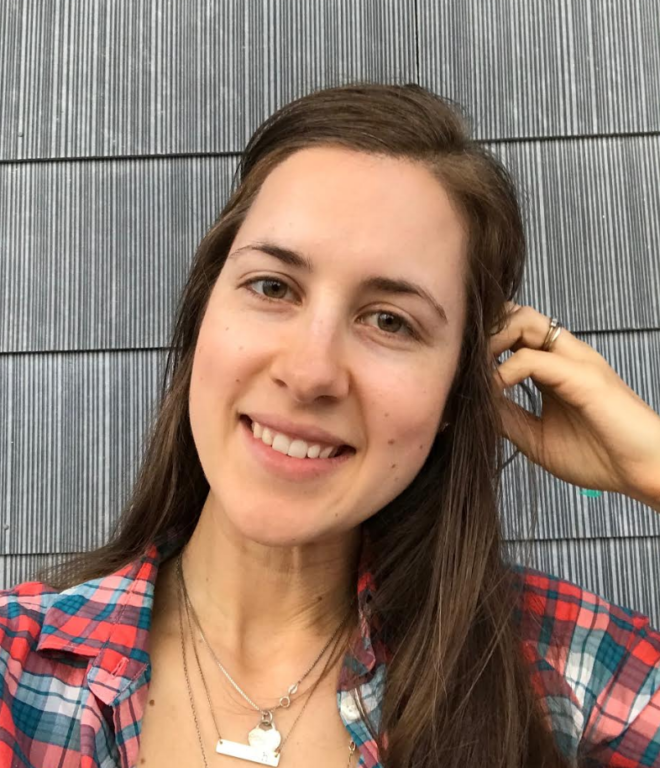 Born and raised in Alabama, and a former graduate of the ecumenical seminary, Fuller Theological Seminary, Shelton continues to draw spiritual nourishment from various streams of Christianity and traditions of different faiths. She currently serves as the Program Director for the Interfaith Youth Initiative, a program of Cooperative Metropolitan Ministries, creating spaces of leadership development, healthy dialogue and personal formation across differences.
Born and raised in Alabama, and a former graduate of the ecumenical seminary, Fuller Theological Seminary, Shelton continues to draw spiritual nourishment from various streams of Christianity and traditions of different faiths. She currently serves as the Program Director for the Interfaith Youth Initiative, a program of Cooperative Metropolitan Ministries, creating spaces of leadership development, healthy dialogue and personal formation across differences.
In the blog below, Shelton shares a reflection on our role as peacemakers and how UniteBoston has provided spaces for healing across division to take place. In Advent, this is a valuable time to reflect on the implications of the incarnation and how God is calling us to bear Jesus’ good news of great joy for all the people.
We are all in relationship with one another. For years, this African concept of Ubuntu continued to baffle and challenge me. How can this be? What might God be inviting me to if I believe this to be true?
“Ubuntu is very difficult to render into a Western language. It speaks of the very essence of being. It is to say, ‘My humanity is inextricably bound up in yours.’ We belong in a bundle of life.” – Desmond Tutu, No Future Without Forgiveness
These words of Archbishop Emeritus Desmond Tutu describe an ideal invitation for life in community. When we provide a safe space for one another, encourage a friend, make decisions to positively impact the brother or sister across the world, forgive and listen, or find space to collaborate – we create community or better yet – Ubuntu. We believe that the central place to experience Ubuntu is the development and care for peace and unity in our everyday relationships, those far and those near. This is especially true for those who follow Jesus as we remember his final prayer of intercession to the Father on our behalf:
“The goal is for all of them to become one heart and mind— just as you, Father, are in me and I in you, so they might be one heart and mind with us. Then the world might believe that you, in fact, sent me. The same glory you gave me, I gave them, so they’ll be as unified and together as we are— I in them and you in me. Then they’ll be mature in this oneness, and give the world evidence that you’ve sent me and loved them in the same way you’ve loved me.” (John 17:20-23 The Message translation)
Unfortunately, our big picture and daily realities often do not align with Jesus’ fervent prayer. The pervasive disunity in Jesus’ church is found in the New Testament issue of Gentile inclusion, the centuries-long Protestant and Catholic conflict, the holocaust in Nazi Germany, the Jim Crow laws and continued impacts of racism in the U.S., and the ideological and theological divides between “conservative” and “liberal”. God’s call for unity is just as prominent today as it has ever been. In this Advent season, we should really ask ourselves whether we’re waiting for a Savior who on the grounds of extravagant grace will unite us?
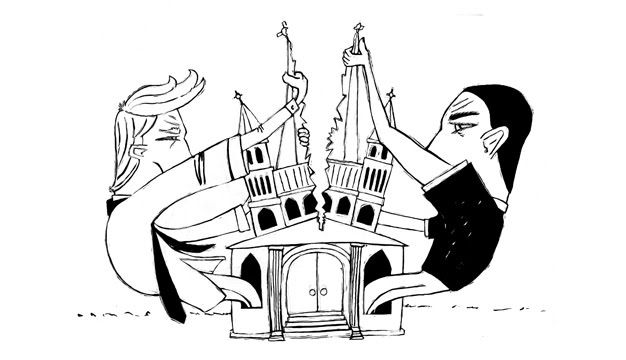
God is a God of great diversity, as exemplified by the rich diversity of people groups and cultures throughout the world. My life and faith has been deeply enriched by such diversity. I am a proud daughter of a Presbyterian pastor of an all white suburban church in Alabama; yet, I have also been a part of non-denominational multi-ethnic, Mennonite, Catholic, Latino-Pentecostal, African-Anglican, vineyard, Southern Baptist, and home church communities. In each, there are friends from whom I have learned a great deal about God and Jesus. Each one has beautifully contributed to the vision for Jesus’ coming that I so long for year round, but particularly during the waiting season of Advent.
Matthew 5:9 recounts Jesus’ teaching to the masses, “Blessed are the peacemakers; for they will be called the children of God.” How we think about, relate to, and interact with one another is of utmost importance as peacemakers seeking unity with each other. The vitality of a relationship depends on two persons committing to trust the motivations of one another. Sadly, entrenched in the wounds of this world, trust among us can be easily questioned or broken. Pope Francis reminds us that this communication is central to healthy and fruitful relationship, and his prayer stated below demonstrates how we can be communicating to build greater peace and unity amongst all peoples. I believe deeply in the Trinity – God as community – and for this reason, I lay down my other differences within the Body of Christ to share a meal, conversation or prayer with a brother or sister from a different background.
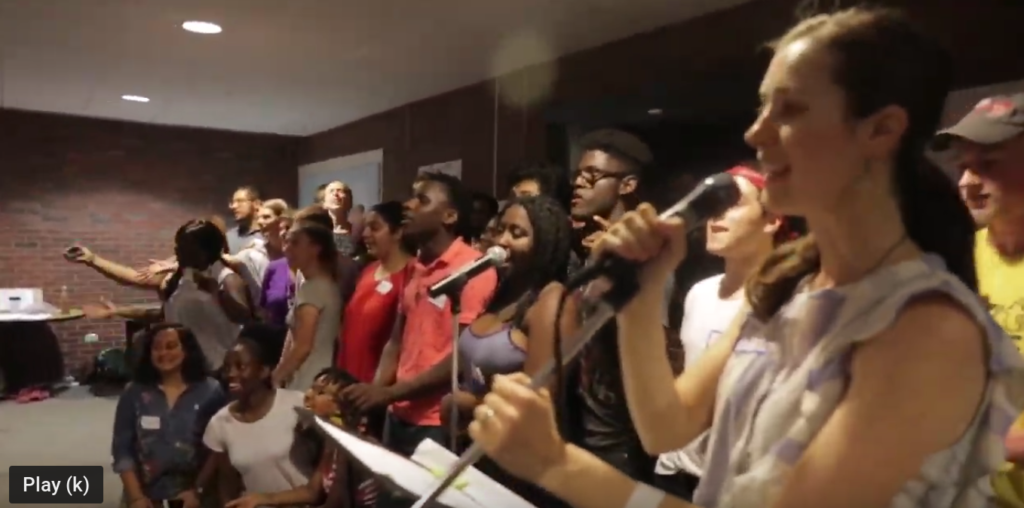
So, what does unity mean? Unity does not have to mean agreeing with one another on everything, but it does mean a common belief that we are all made in the image of God and therefore called precious and invaluable by the Creator. Unity does not mean that we all become great friends overnight or compromise our beliefs, but it does mean respecting, acknowledging and even appreciating that Jesus came to love, save, and make whole all those who have a relationship with Him and an individual’s journey is not ours to judge. Unity does not mean that we all worship together or read and interpret the Bible in the same way, but it does mean we share a belief that the Holy Spirit is moving in ways we often cannot see nor understand. Finally, unity does not mean avoiding difference, but rather requires living life that intersects with difference so the world will know Jesus as the Son of God.
In recent years, no other source has described what it means to offer peace to other people than a beautifully written children’s book called Peace is an Offering. I read this book many a night to my daughter as she grew in my womb, praying that God would humble me to think, speak and act peacefully toward her, demonstrating the transformative power that peaceful communication holds. The simple words and illustrations offer us timeless and invaluable proactive ideas and thoughtful questions concerning the way of a true peacemaker.
“Peace is an offering… A muffin or a peach.”
“Peace is holding on to another. Peace is the words you say to a brother, ‘Will you stay with me? Will you be my friend? Will you listen to my story till the very end?’”
“Will you wait when I’m slow? Will you calm my fears? Will you sing to the sun to dry my tears? Will you keep me company when I’m all alone? Will you give me shelter when I’ve lost my home?”
“Peace is a joining, not a pulling apart. It’s the courage to bear a wounded heart.”
Looking back at 2018, when have you offered this kind of peace to someone in a different church community, denomination or Christian tradition, across racial or economic or theological or political divides?
I am thankful for the ways friends across Christian traditions, varied preferences for worship, and differing theologies have offered me peace in these ways and more. I think of my friends who fervently pray for physical and spiritual healing, my friends who invite me to dance, sing and worship with boldness and creativity, my friends who advocate for the excluded, my friends who light a candle and pray the Rosary on my behalf, and my friends who sit with me in silence before God… I long to be in unity with all of these friends; they make the reality of Heaven so much greater!
Jesus was challenged to cast judgment or speak with hostility and pride against someone and ignore those on the fringes, those with whom others lived in disunity, exclusion and conflict. Jesus, God Incarnate, represented the life a true peacemaker by making a way where there was no way for the ultimate joining together in this life and beyond. Jesus walked his talk every step of the way: calming fears, offering solidarity, listening and speaking the truth in love, providing company, serving and being served, trusting and asking to be trusted. Jesus understood that the world’s brokenness would truly heal one relationship at a time and lived peacefully by example, loving his neighbor as himself (Matthew 22:39). Our charge is to do the same and in turn experience for ourselves God’s gift of glorious and much-needed healing from the inside out.
UniteBoston has provided spaces for such intersections and healing to take place. Sharing in worship at the citywide worship night or sharing a meal with Christians of all kinds in my neighborhood has increased my hope for Boston, a city known for its segregation and division. Participating in and witnessing the “Big C” church become the ultimate “city on a hill” in Boston means the diverse people of our city might finally see us as those who are known for their love for God and one another.
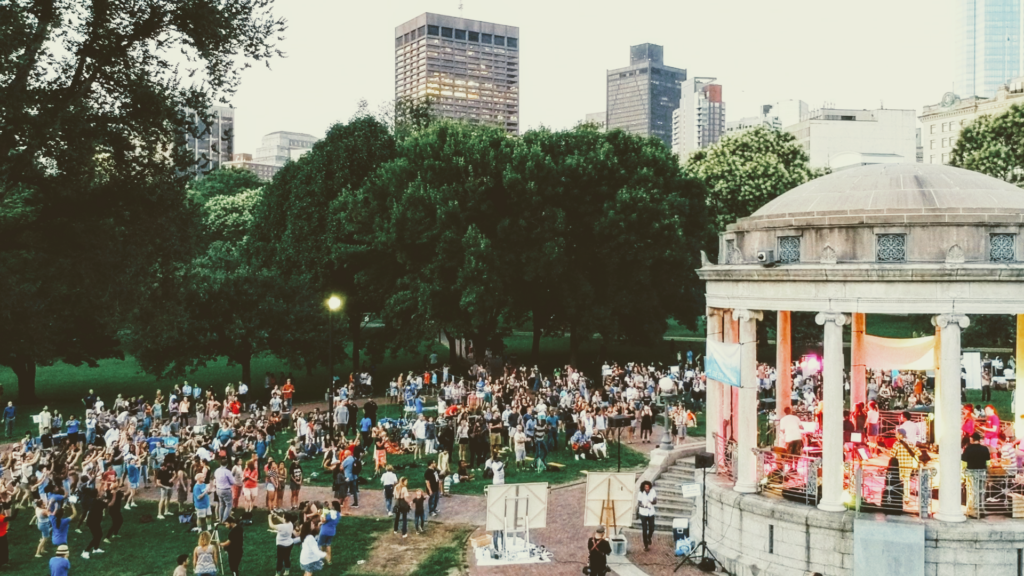
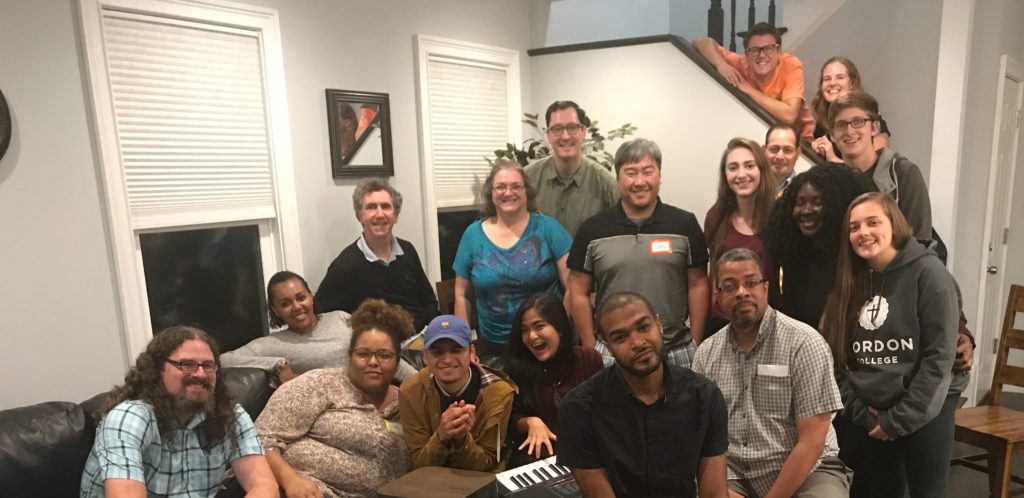
This Advent season, are you waiting for that which Jesus is waiting for? How might you build into Jesus’ vision for unity by the way you interact with others, open yourselves to relationship with “the Christian other”, and share in mutual service, conversation and grace, in light of the extravagant grace that God has shown to you?
Pope Francis’ prayer from World Communications Day, March 13, 2018
Lord, make us instruments of your peace.
Help us to recognize the evil latent in a communication that does not build communion.
Help us to remove the venom from our judgments.
Help us to speak about others as our brothers and sisters.
You are faithful and trustworthy; may our words be seeds of goodness for the world:
Where there is shouting, let us practice listening;
Where there is confusion, let us inspire harmony;
Where there is ambiguity, let us bring clarity;
Where there is exclusion, let us offer solidarity;
Where there is sensationalism, let us use sobriety;
Where there is superficiality, let us raise real questions;
Where there is prejudice, let us awaken trust;
Where there is hostility, let us bring respect;
Where there is falsehood, let us bring truth. Amen.
Prayer of Peace written by David Tonghou Ngong
Dear God, we hear of peace only as a faraway dream;
we long for it in our lives, in the lives of our families,
our friends, and our countries.
But with each passing day
the prospect for peace
seems to be increasingly tantalizing.
Restlessness seems to be
the order of our present existence:
our inner restlessness rooted in various anxieties,
our societal restlessness rooted in
the evils that go on around us,
the restlessness of our world
plagued by conflicts of all sorts.
Dear God, we hear of peace only as a dream;
a dream we would love to be part of,
a dream we long to have in our hearts, in our neighborhoods,
in our countries, and even in our churches and faith communities.
We pray that we may experience that peace
that passes all understanding,
we pray, O God, that we may experience You,
the Peace of the world.
Penetrate the grieving heart,
accompany the lonely one,
remember the forgotten,
reclaim the strayed,
make music out of the
disharmony of conflict and chaos.
Let our restless hearts rest in you, O God.
This we pray in the name of the Christ,
who beckons us into the vision of Peace. Amen.
Leave a Reply